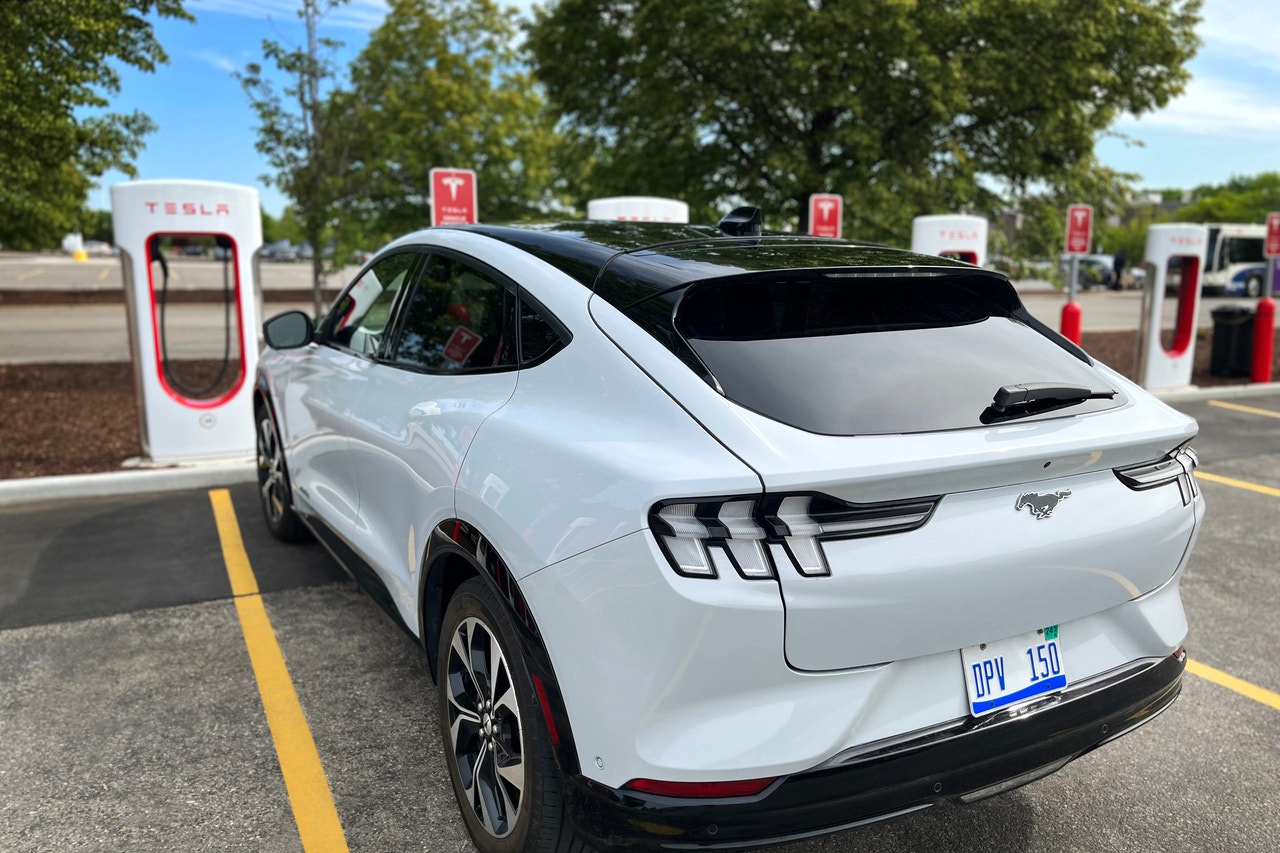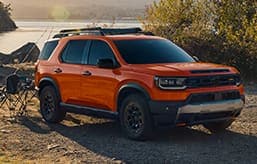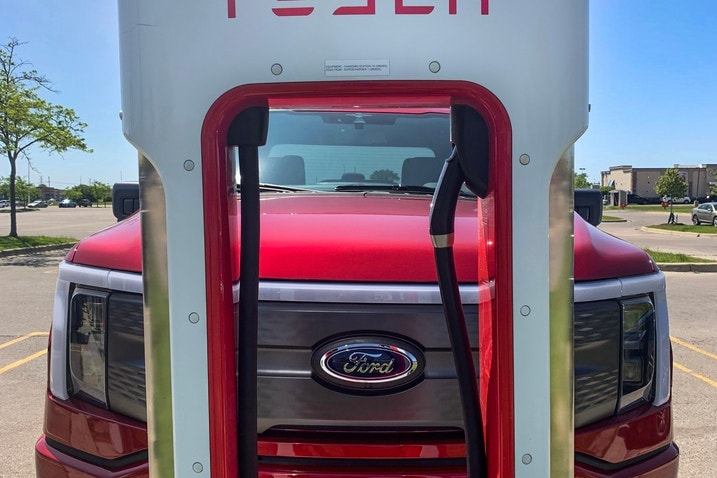- Tesla and Ford announce partnership to allow Ford's EVs to access the Supercharger network.
- A new adapter will allow existing Ford EVs to plug into more than 12,000 Supercharger stations.
- Future Fords will ship with a plug for Tesla's proprietary charging cable.
Ford Announces Charging Partnership with Tesla
Next year, Ford EVs will be able to use Tesla Superchargers
Today, Ford and Tesla announced a new partnership that allows owners of a Ford electric vehicle to use Tesla's Supercharger network, which will go into effect in spring 2024. A new Tesla-developed adapter will be available for Ford's F-150 Lightning pickup, Mustang Mach-E crossover and E-Transit work van and will allow those vehicles to charge at the more than 12,000 Supercharger stations spread throughout the U.S. and Canada. Ford's next generation of electric vehicles, which will start shipping in 2025, will also feature a charge plug for the proprietary Tesla NACS charger.
The news comes a few months after Tesla opened the Supercharger network to non-Tesla EVs in a limited fashion. At the time of this publication, there are 11 stations nationwide that feature what Tesla calls the "Magic Dock," which is just a station that offers both Tesla's traditional NACS charger and a CCS charger. There will presumably be more Superchargers built with Magic Docks in the future, but the Tesla-developed adapter allows Ford EVs much more immediate and wide-ranging access.
Am I Ready for an EV?
- EV ownership works best if you can charge (240V) at home or at work This typically means a 240V home installation, but you could also have a similar setup at your office or other places your car is already parked for several hours each day. Don't expect a regular household outlet (120V) to suffice unless you've got a plug-in hybrid, in which case overnight charging at home is feasible.
- If you can’t charge at home, charging at a charging station could take at least 10x longer than at a gas station With public charging infrastructure still in its infancy, the user experience can be maddeningly inconsistent. Tesla owners tend to rave about the reliability and speed of the company's proprietary Supercharger stations, but rival DC fast options have thus far been plagued by technical issues and overcrowding. It's an evolving landscape and our best advice is to do your research on the available options for the EV you want to buy.
- Adding a 240V home charging system could cost up to $1,600 or more If your existing electrical service can handle the additional demands of EV charging, you may be able to add Level 2 charging at home for less than a grand, including installation. But your costs will multiply if you need to upgrade your electrical panel or add a dedicated circuit.
Ever since Tesla laid out its target time frame for letting non-Tesla EVs charge using their network, we had questions about how it would work. After all, the plan to open 7,500 Tesla Superchargers and NACS-equipped destination chargers to non-Teslas by the end of 2024 couldn't realistically be accomplished simply by constructing new Magic Dock-equipped stations throughout the country. At least, not without significant expense.
A NACS-to-CCS adapter was always the most efficient and cost-effective solution, but Ford is leaning into Tesla's loosening of the reins by adding a NACS plug to its future electric vehicles. In a CNBC interview, Ford CEO Jim Farley says "[CCS] is great, and we'll have adapters for that..." hinting that the NACS plug will completely replace the CCS plug.
The only question we have is whether Ford's EVs will be subject to Tesla's multitiered pricing structure for charging. Currently, Tesla owners are charged one rate for using a Supercharger, with non-Tesla owners being charged a higher rate per kilowatt-hour. Non-Tesla owners who don't want to pay the higher rate can instead pay a $12.99/month subscription fee, which lowers the kWh cost to the same rate as for Tesla owners. It's possible that this partnership allows Ford owners to charge using the Tesla rate, but those details haven't been announced yet.
Edmunds says
Ford's electric vehicles will likely become the first non-Teslas to tap into the coast-to-coast Supercharger network.






 by
by